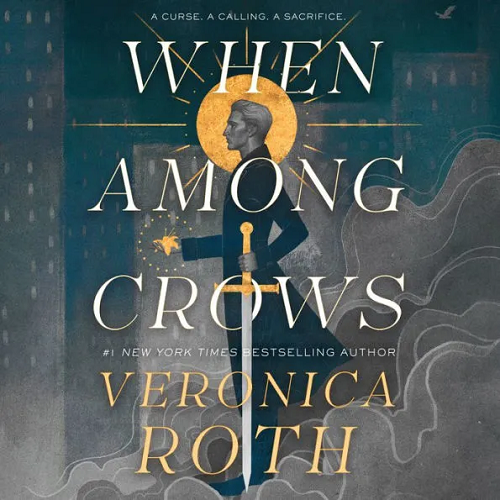 When Among Crows by Veronica Roth
When Among Crows by Veronica Roth Narrator: Helen Laser, James Fouhey, Tim Campbell
Format: audiobook, eARC
Source: supplied by publisher via Edelweiss, supplied by publisher via Libro.fm
Formats available: hardcover, ebook, audiobook
Genres: fantasy, urban fantasy
Pages: 176
Length: 4 hours and 29 minutes
Published by Macmillan Audio, Tor Books on May 14, 2024
Purchasing Info: Author's Website, Publisher's Website, Amazon, Barnes & Noble, Kobo, Bookshop.org, Better World Books
Goodreads
When Among Crows is swift and striking, drawing from the deep well of Slavic folklore and asking if redemption and atonement can be found in embracing what we most fear.
We bear the sword, and we bear the pain of the sword.
Pain is Dymitr’s calling. His family is one in a long line of hunters who sacrifice their souls to slay monsters. Now he’s tasked with a deadly mission: find the legendary witch Baba Jaga. To reach her, Dymitr must ally with the ones he’s sworn to kill.
Pain is Ala’s inheritance. A fear-eating zmora with little left to lose, Ala awaits death from the curse she carries. When Dymitr offers her a cure in exchange for her help, she has no choice but to agree.
Together they must fight against time and the wrath of the Chicago underworld. But Dymitr’s secrets—and his true motives—may be the thing that actually destroys them.
My Review:
There’s an old Polish saying – not the one you’re thinking of, at least not yet – that translates as “Not my circus, not my monkeys” Which pretty much sums up the attitude of the first zmora that Dymitr approaches in regards to the very dangerous trade he wants to make.
The second zmora comes to him, because what he’s offering IS her cursed circus and those are her damned monkeys. Or, to be a bit more on the nose about the whole thing, it is her murder – or at least it will be – and those are her crows, who are already flocking to the scene.
Dymitr has acquired a legendary magical artifact that holds the possibility of a cure for the curse that Ala suffers from. A curse that killed her mother, her aunt, and her cousin, and is now killing her. A curse that will pass down her bloodline to the next female relative in line – no matter how distant – until the whole line is wiped out.
In return, Dymitr wants an introduction to another legendary ‘artifact’, the powerful witch Baba Jaga [that’s how her name is spelled in the book]. As merely a human, Dymitr does not have access to the places and people that will get him to his goal. As a zmora, while Ala does not know Baba Jaga at all, she does have contacts who can at least get Dymitr a few steps further along on the quest that he refuses to either name or explain.
Their journey proves to be a very different “magical mystery tour” than the one that the Beatles sang about, observing the different magical populations that have migrated to Chicago from his native Poland, and how each group abides by the proverb, “When among crows, caw as the crows do.”
The zmora, who feed on fear, operate movie theaters that feature horror movies, the strzygi, who live on anger and aggression, run underground fight clubs, while the llorona, who collect sorrow, own a chain of hospice centers. It’s all perfectly legal, or at least most of it is. And the parts that aren’t, the strzygi fight clubs, fit right in with the rest of the organized crime and corruption that operates in Chicago.
The supernatural have learned to caw like the crows do, the better to hide from the powerful so-called ‘Holy Order’ that hunts down anyone and anything it deems to be ‘not human enough’. And isn’t that the most human impulse of all?
An impulse, and a life, that Dmitry is willing to cut himself off from – literally as well as figuratively – at any and all cost. Even the cost of the humanity that his family has held so dear over the centuries.
All he needs to do is find Baba Jaga – and pay whatever price she demands in order to cut the sword out of his back once and for all.
Escape Rating A+: I’ve frequently said that a story has to be just about perfect to make the leap from an A- to an A. This one absolutely did, and listening to the audio put it over the top into A+. With bells on. To the point where I have to restrain myself from just squeeing all over the place.
The tone of When Among Crows felt very much like ‘old school’ urban fantasy before it left its horror with mystery roots behind to fall down the paranormal romance rabbit hole. Not that I don’t love a good paranormal with a kickass heroine posed on the cover in an utterly impossible position, but those got to dominating the genre and that’s not all I wanted from it.
(The blurb implies a romantic relationship between Dymitr and Ala. Don’t be fooled, that is absolutely not what is going on here – and it shouldn’t be. The relationship they are scrabbling towards is family, that the pain they have both suffered, and from the same source, can lead to them finding the family ties that pain has cost them with each other.)
 At the same time, the way this story drew in so many Slavic myths and legends that I itched for a mythopedia (I was driving, that would have had terrible consequences) reminded me, a lot and very fondly, of Neil Gaiman’s American Gods, because that book gave me the same vibes – along with the same dilemma – and I listened to it well before the Annotated Edition was published. I won’t say that When Among Crows was better, because American Gods had a much larger scope, but for the smaller size of the package of Crows, it still managed to evoke that same sense of memory and wonder, that so much that is old and weird still walks among us hidden in plain sight – made all that much more poignant in that the place the weird is hiding is the darker corners of Chicago – a city that has always had plenty.
At the same time, the way this story drew in so many Slavic myths and legends that I itched for a mythopedia (I was driving, that would have had terrible consequences) reminded me, a lot and very fondly, of Neil Gaiman’s American Gods, because that book gave me the same vibes – along with the same dilemma – and I listened to it well before the Annotated Edition was published. I won’t say that When Among Crows was better, because American Gods had a much larger scope, but for the smaller size of the package of Crows, it still managed to evoke that same sense of memory and wonder, that so much that is old and weird still walks among us hidden in plain sight – made all that much more poignant in that the place the weird is hiding is the darker corners of Chicago – a city that has always had plenty.
When Among Crows was utterly enchanting, and I was totally enchanted by it, staying up entirely too late to finish the audio because it was just that good. While the story was relatively short, it also went surprisingly deep, and then came around full circle in a way that surprised and delighted even as it led to a delicious sort of closure that I wasn’t expecting but utterly loved.

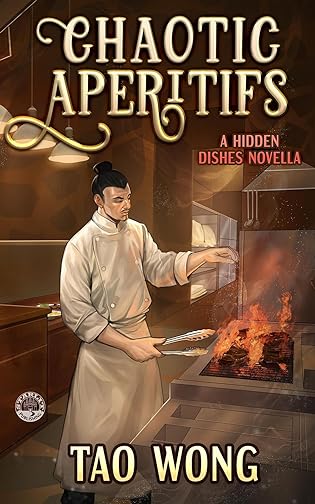 Chaotic Apéritifs: A Cozy Cooking Fantasy (Hidden Dishes Book 2) by
Chaotic Apéritifs: A Cozy Cooking Fantasy (Hidden Dishes Book 2) by 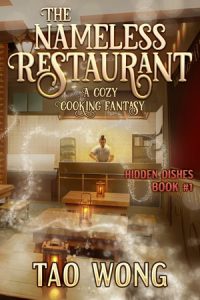 Escape Rating A-: I’m doing this review a week early so that you have a chance to read the tasty first book in the
Escape Rating A-: I’m doing this review a week early so that you have a chance to read the tasty first book in the 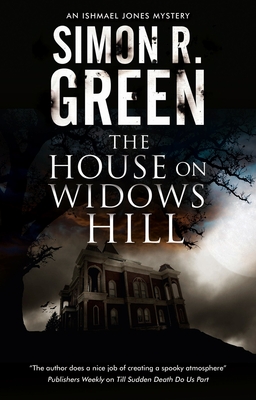 The House on Widows Hill (Ishmael Jones #9) by
The House on Widows Hill (Ishmael Jones #9) by 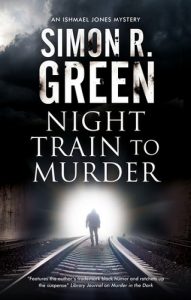 The House on Widows Hill is more of a twist on the typical English country house mystery than even Ishmael Jones and his partner Penny Belcourt usually have to contend with.
The House on Widows Hill is more of a twist on the typical English country house mystery than even Ishmael Jones and his partner Penny Belcourt usually have to contend with.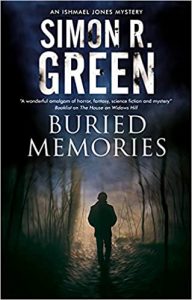 Someone in the ‘Organization’ is considering buying the place – or that’s what Ishmael and Penny are told, anyway. That night is a ‘one-night-only’ invitation to not just Ishmael and Penny as representatives of the potential buyer, but also to a whole team of “ghost botherers” (as Ishmael calls them) who have been begging – for years it seems – to get inside the old haunt. Along with one intrepid reporter who represents the family that owns the creepy pile – and really would like to get shed of the place once and for all.
Someone in the ‘Organization’ is considering buying the place – or that’s what Ishmael and Penny are told, anyway. That night is a ‘one-night-only’ invitation to not just Ishmael and Penny as representatives of the potential buyer, but also to a whole team of “ghost botherers” (as Ishmael calls them) who have been begging – for years it seems – to get inside the old haunt. Along with one intrepid reporter who represents the family that owns the creepy pile – and really would like to get shed of the place once and for all.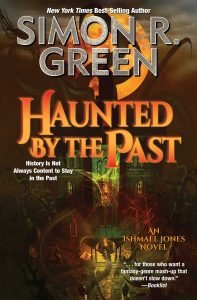 Escape Rating A-: I normally save this series for around Halloween, but I’m in the midst of a reading quandary that I hoped this book would solve – or at least beat back for a couple of days. I’m in the middle of listening to Erik Larson’s
Escape Rating A-: I normally save this series for around Halloween, but I’m in the midst of a reading quandary that I hoped this book would solve – or at least beat back for a couple of days. I’m in the middle of listening to Erik Larson’s 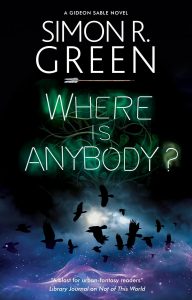 The House on Widows Hill very much has the classic haunted house vibe going on – even though with Ishmael and Penny involved the reader begins the story aware that it just isn’t going to go to any of the places that haunted houses normally go. That Ishmael gets shaken out of some of his internal certainties and securities added a bit to the ongoing arc of the series while at the same time ramping up the tension of both this book and the books in the series yet to come.
The House on Widows Hill very much has the classic haunted house vibe going on – even though with Ishmael and Penny involved the reader begins the story aware that it just isn’t going to go to any of the places that haunted houses normally go. That Ishmael gets shaken out of some of his internal certainties and securities added a bit to the ongoing arc of the series while at the same time ramping up the tension of both this book and the books in the series yet to come.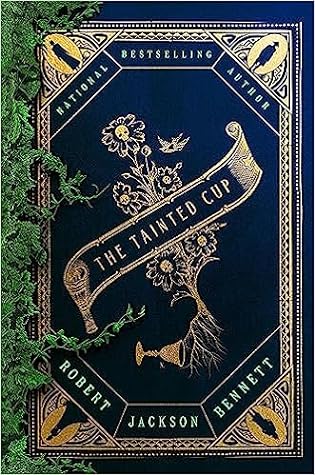 The Tainted Cup (Shadow of the Leviathan, #1) by
The Tainted Cup (Shadow of the Leviathan, #1) by 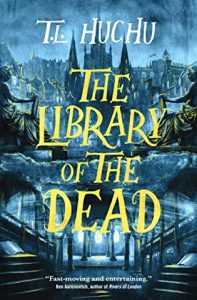 Escape Rating A+: There’s been a rise in science fiction mysteries in the last couple of years, with books like Mur Lafferty’s
Escape Rating A+: There’s been a rise in science fiction mysteries in the last couple of years, with books like Mur Lafferty’s 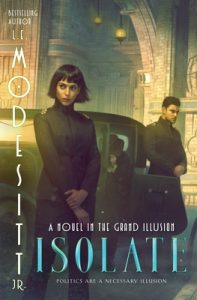 But the setting of The Tainted Cup, and the epically FUBAR political situation therein, is very much fantasy of both the grimdark and steampunk varieties. The world, with its mixture of science and magic and scientifically based magic is similar to the setting of L.E. Modesitt’s
But the setting of The Tainted Cup, and the epically FUBAR political situation therein, is very much fantasy of both the grimdark and steampunk varieties. The world, with its mixture of science and magic and scientifically based magic is similar to the setting of L.E. Modesitt’s 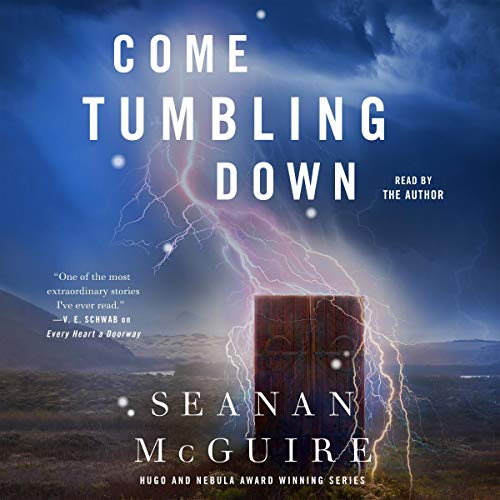 Come Tumbling Down (Wayward Children, #5) by
Come Tumbling Down (Wayward Children, #5) by 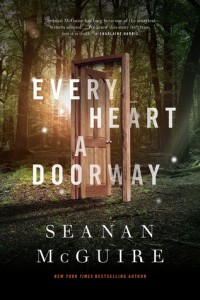 I’ve been winding my way through Seanan McGuire’s
I’ve been winding my way through Seanan McGuire’s 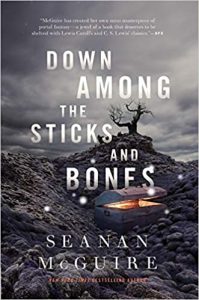 Jack is in dire straits when she returns to the school, and she needs the help of the only friends she can trust to see that, in spite of appearances, she’s still Jack even though she’s in her twin sister Jill’s body. They are the only people who know her well enough to understand that her OCD will not allow her to just adapt to living her life in the unclean thing that murdered her mentor – even if Jill’s full, entire, complete and utterly nefarious plot is to destroy both her sister Jack and the balance that keeps The Moors relatively safe and functional for the human population that was born to a world where vampires contend with mad scientists and drowned gods prey upon ships and shorelines, where the sun only rises behind thick clouds and lightning storms happen whenever the Moon wills it so.
Jack is in dire straits when she returns to the school, and she needs the help of the only friends she can trust to see that, in spite of appearances, she’s still Jack even though she’s in her twin sister Jill’s body. They are the only people who know her well enough to understand that her OCD will not allow her to just adapt to living her life in the unclean thing that murdered her mentor – even if Jill’s full, entire, complete and utterly nefarious plot is to destroy both her sister Jack and the balance that keeps The Moors relatively safe and functional for the human population that was born to a world where vampires contend with mad scientists and drowned gods prey upon ships and shorelines, where the sun only rises behind thick clouds and lightning storms happen whenever the Moon wills it so.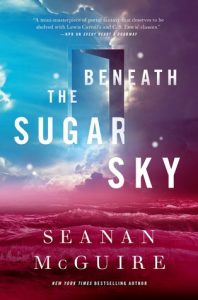 Escape Rating A-: The
Escape Rating A-: The 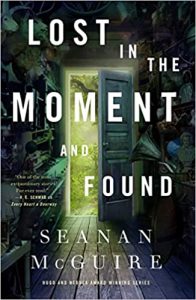 One of the core tenets of the whole, entire,
One of the core tenets of the whole, entire, 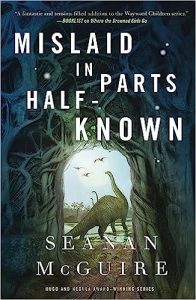 So, on the surface there’s a story about vampires and mad scientists set in a place that the great horror movies might have used for their inspiration – if not their actual setting. Underneath that there’s a deeper story about balances of power and how devastating it can be when those balances become unbalanced. And the story of one heroine who is willing to throw her own body into the breach – along with her sister’s corpse – to preserve that balance at truly any and every cost.
So, on the surface there’s a story about vampires and mad scientists set in a place that the great horror movies might have used for their inspiration – if not their actual setting. Underneath that there’s a deeper story about balances of power and how devastating it can be when those balances become unbalanced. And the story of one heroine who is willing to throw her own body into the breach – along with her sister’s corpse – to preserve that balance at truly any and every cost.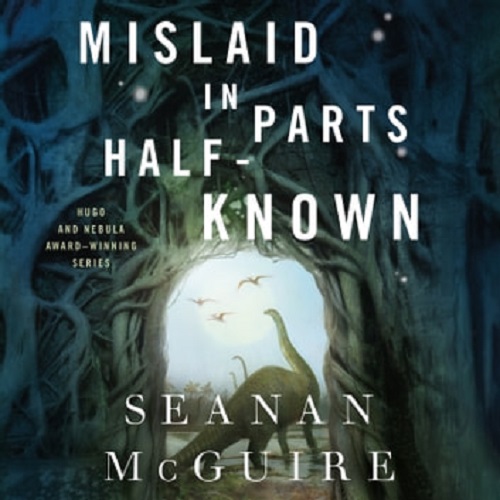 Mislaid in Parts Half-Known (Wayward Children, #9) by
Mislaid in Parts Half-Known (Wayward Children, #9) by 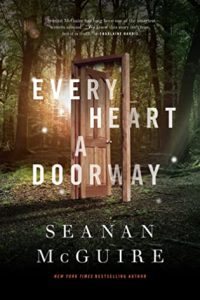 Beginning with
Beginning with 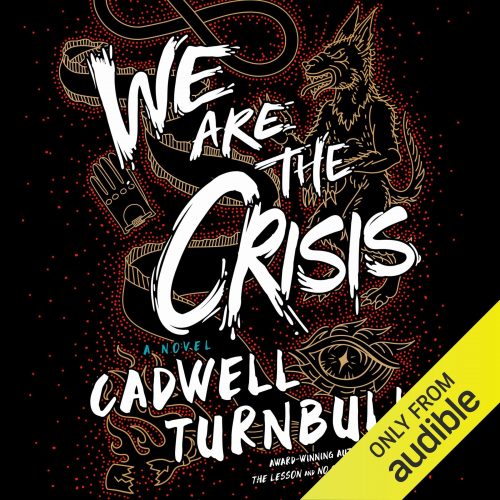 We Are the Crisis (Convergence Saga #2) by
We Are the Crisis (Convergence Saga #2) by 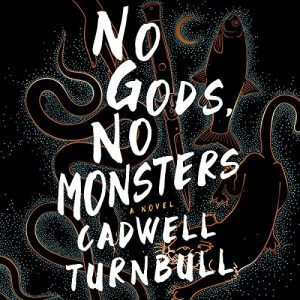 Escape Rating B+: The story so far, with the separation of its many and various threads and its detachment from its characters, reads like a kind of fever dream. Or at least it feels that way when read by its marvelous narrator Dion Graham.
Escape Rating B+: The story so far, with the separation of its many and various threads and its detachment from its characters, reads like a kind of fever dream. Or at least it feels that way when read by its marvelous narrator Dion Graham.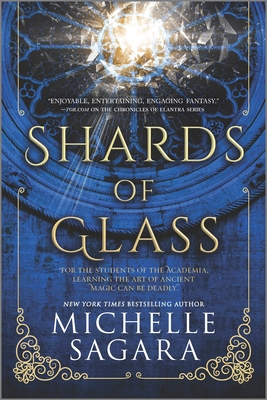 Shards of Glass by
Shards of Glass by 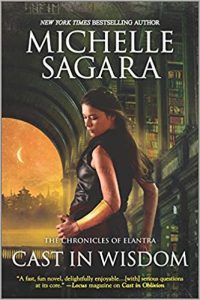 Shards of Glass is a bit of a side story in the marvelously interwoven, intricately-plotted, and long-running
Shards of Glass is a bit of a side story in the marvelously interwoven, intricately-plotted, and long-running 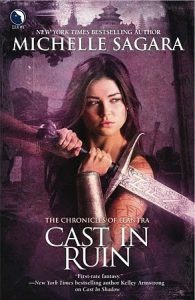 Escape Rating A+: I began reading the
Escape Rating A+: I began reading the 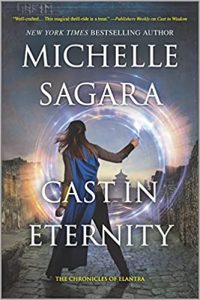 And of course they all turn out to be wrong – and wrong in a way that is buried in the legends of the deep past and will cause catastrophic destruction if they’re not sussed out in time and by the right people.
And of course they all turn out to be wrong – and wrong in a way that is buried in the legends of the deep past and will cause catastrophic destruction if they’re not sussed out in time and by the right people.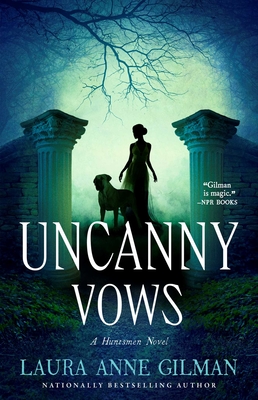 Uncanny Vows (Huntsmen, #2) by
Uncanny Vows (Huntsmen, #2) by 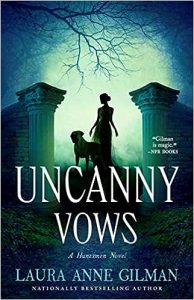 If the idea that the Harker family is somehow involved with the things that go bump in the night feels familiar but you can’t quite remember why, it’s because it IS familiar. Jonathan Harker got himself mixed up with a famous vampire in a little place called Transylvania a mere couple of decades before we first met Aaron and Rosemary Harker in the first book in the
If the idea that the Harker family is somehow involved with the things that go bump in the night feels familiar but you can’t quite remember why, it’s because it IS familiar. Jonathan Harker got himself mixed up with a famous vampire in a little place called Transylvania a mere couple of decades before we first met Aaron and Rosemary Harker in the first book in the 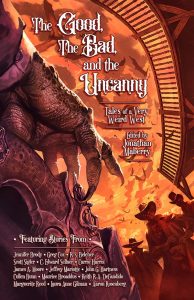 Escape Rating B+: So far, at least, the
Escape Rating B+: So far, at least, the 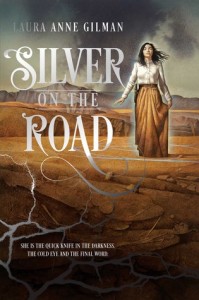 At the same time, the heavy lifting of setting up the world and the series has already been done in that first book, so this one is able to sink its teeth into the case from the very first page – and that they drive off in Aaron’s rented ‘automotive” gets things going that much faster, while Rosemary’s dislike of the speed, the dust, and Aaron’s relative inexperience driving the thing adds a bit of lightness to what is otherwise a rather dark story of obsession and possession.
At the same time, the heavy lifting of setting up the world and the series has already been done in that first book, so this one is able to sink its teeth into the case from the very first page – and that they drive off in Aaron’s rented ‘automotive” gets things going that much faster, while Rosemary’s dislike of the speed, the dust, and Aaron’s relative inexperience driving the thing adds a bit of lightness to what is otherwise a rather dark story of obsession and possession.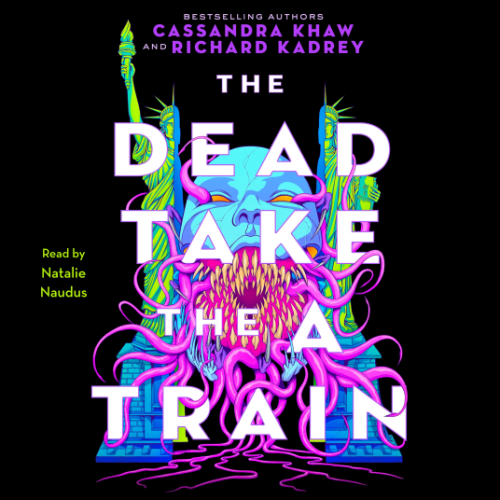 The Dead Take the A Train (Carrion City, #1) by
The Dead Take the A Train (Carrion City, #1) by 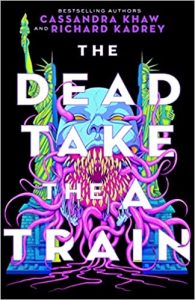 Escape Rating B+: First and most importantly, this is your trigger warning that The Dead Take the A Train is a bloody, gory, gruesome reminder that urban fantasy as a genre is the uncanny child of mystery and horror, much like the uncanny babies being born in yesterday’s book,
Escape Rating B+: First and most importantly, this is your trigger warning that The Dead Take the A Train is a bloody, gory, gruesome reminder that urban fantasy as a genre is the uncanny child of mystery and horror, much like the uncanny babies being born in yesterday’s book,